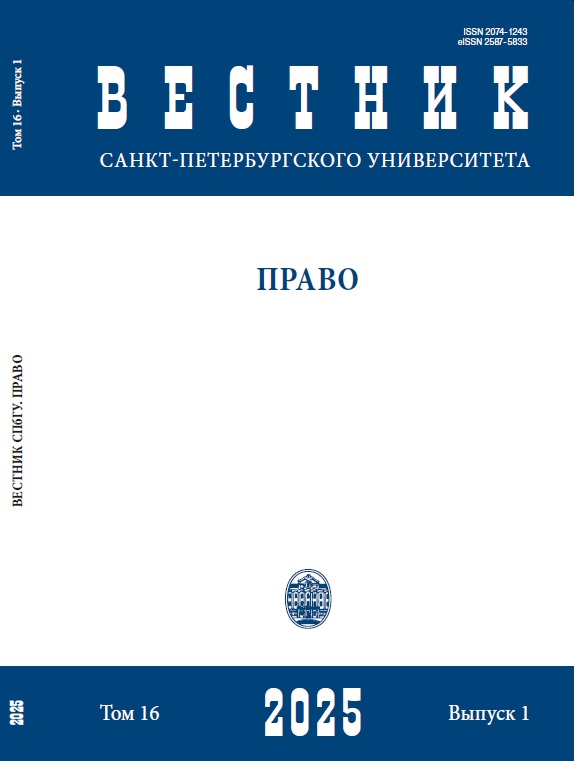Deepfake technologies and biometric data: Directions of criminal legal regulation
DOI:
https://doi.org/10.21638/spbu14.2025.107Abstract
The article is devoted to the study of the need to adjust Russian criminal legislation in terms of protecting individuals from falsification of their biometric personal data through the use of artificial intelligence systems. The relevance of the topic is explained by the availability of deepfake technologies, which allow you to quickly and realistically create digital copies of people, as well as the prevalence of the use of biometric data in everyday life: when making purchases, confirming identity and entering protected areas. The article explains that the emergence of new computer technologies has exacerbated the threat of using the image of another person when committing illegal acts. The first cases of theft using fake biometric data have already been recorded in China and the United Arab Emirates. The author analyzed the provisions of domestic and foreign criminal legislation, which made it possible to establish some shortcomings of legal counteraction to malicious falsification of a person’s appearance and voice. The work emphasizes that deepfake technologies are not the only method, and their purpose is not strictly criminal in nature, and therefore it is necessary to raise the issue of protecting biometric data in general. The position on the insufficiency of the protective potential of civil and administrative law is stated in a reasoned manner. The author provides evidence that falsification of appearance, voice, finger papillary patterns and genomic information poses a great social danger if carried out with the aim of hiding another crime or facilitating its commission. The admissibility of a criminal law prohibition that is similar to the provisions of Art. 327 of the Criminal Code of the Russian Federation and the rules of the State of Massachusetts. As
a result of the study, an edition of the corresponding article was formulated, which can be used as a recommendation when improving legislation.
Keywords:
deepfake, orgery, digital copies, falsification, biometric data, voice, ace
Downloads
References
Downloads
Published
How to Cite
Issue
Section
License
Articles of "Vestnik of Saint Petersburg University. Law" are open access distributed under the terms of the License Agreement with Saint Petersburg State University, which permits to the authors unrestricted distribution and self-archiving free of charge.






